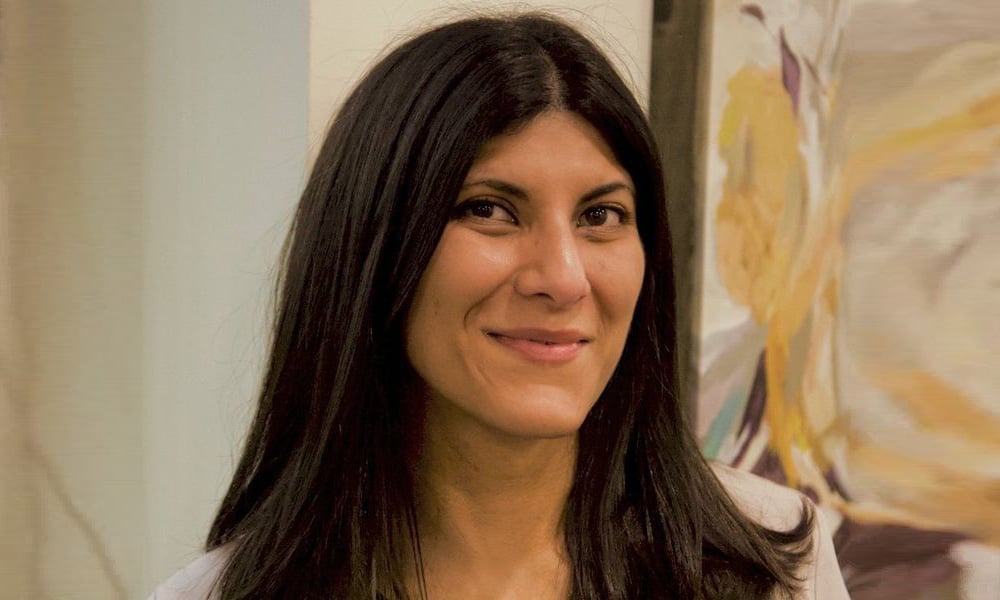
In 2014, Mithoowani successfully challenged a policy banning the niqab in citizenship ceremonies

Toronto-based refugee and immigration lawyer Naseem Mithoowani has been appointed an adjudicator on the Human Rights Tribunal of Canada for a part-time, five-year term.
Mithoowani is a lawyer at Mithoowani Waldman Immigration Law Group, and focuses in the areas of business immigration, personal immigration and administrative law. She is also an adjunct professor at Osgoode Hall Law School, where she teaches immigration and refugee law. As a part-time adjudicator, Mithoowani says she will continue to practice.
“This role is an extension of the work that I've done,” she says. “I'm interested in looking at it from the other side. I've always been – up until now – an advocate or a lawyer appearing before a tribunal. And in that experience, I've learned a lot about what makes a good decision-maker… I thought that I could use that experience and also gain that new perspective and the new skills of sitting on the other side of a case.”
Mithoowani graduated from Osgoode Hall Law School in 2007, articled at Lerners LLP in London, Ont. and then worked for the firm for a year after her bar call. At Lerners, she developed an immigration law practice, something the firm lacked at the time but for which there was demand from clients. As a brand-new lawyer creating a new practice area, she had to learn fast. But when she got her first approval on an immigration file, she realized she had found her passion.
Mithoowani moved to Toronto and joined Waldman and Associates, a leading refugee and immigration firm.
“Immigration law allows you to keep learning,” she says. “Every file is very different. And every file has aspects that are new. For example, one day I'll be learning about drug cartels in Mexico to try and understand a refugee claimant’s story. And the next day I might be learning about A new business venture that my client’s started up and wants a work permit for.”
“It's rewarding, as well as intellectually stimulating.”
Immigration reaches far outside the law, incorporating a wide range of factual content such as the pressing global issues impacting the situation in other countries, she says. It is also always changing, with every new government implementing broad changes that fit their political agenda.
“Because at the end of the day, I think immigration is something that is so political,” says Mithoowani. “And everyone has an opinion on how and who we should bring in.”
While the circumstances are always changing, sometimes the political substance remains the same.
Last week, Quebec’s legislation prohibiting some civil servants – including government lawyers – from wearing religious symbols was ruled a violation of the basic rights of religious minorities, but permissible because of the notwithstanding clause.
Six years ago, Naseem Mithoowani fought the federal government on a policy banning women from wearing niqabs in their citizenship ceremonies.
It began when Alberta Premier Jason Kenney was the federal Conservative immigration minister, under Prime Minister Stephen Harper, and implemented a policy prohibiting immigrants from wearing a facial covering while taking their oath of citizenship.
“It had actually been in effect for a number of years before we had someone brave enough to want to challenge it,” says Mithoowani. “Because of course, when you're challenging it, you're also putting your own application for citizenship on hold.”
Zunera Ishaq took on the task. When they argued the matter in Federal Court, there was little publicity, says Mithoowani. “Then, a bit surprisingly, it became an election issue.”
Ishaq won and the government appealed. It was a “packed room,” and the Federal Court of Appeal judges took just 15 minutes to decide the case from the bench, says Mithoowani. The Court also ordered Ishaq be granted citizenship on an expedited basis so she could vote in the federal election.
Though Mithoowani argued that the policy violated the Charter guarantee of freedom of religion and was discriminatory, the constitutionality was never decided on. The case turned on the administrative principle that the government cannot treat policies as binding law, she says.
“What I think actually is the most important part of that case, is not the legal principles, and not even the judgments of the court,” says Mithoowani. “What I think the most important part of that case is how we finally engaged in dialogue with one another.”
“The media sought out Muslim women who wear niqab and asked them ‘why?’ And they were – for the first time that I remember – they were actually active participants in that dialogue. They weren't being spoken for, but they were being engaged in the conversation. And what we came out of that with, as a society, I think, is a better understanding of one another.”